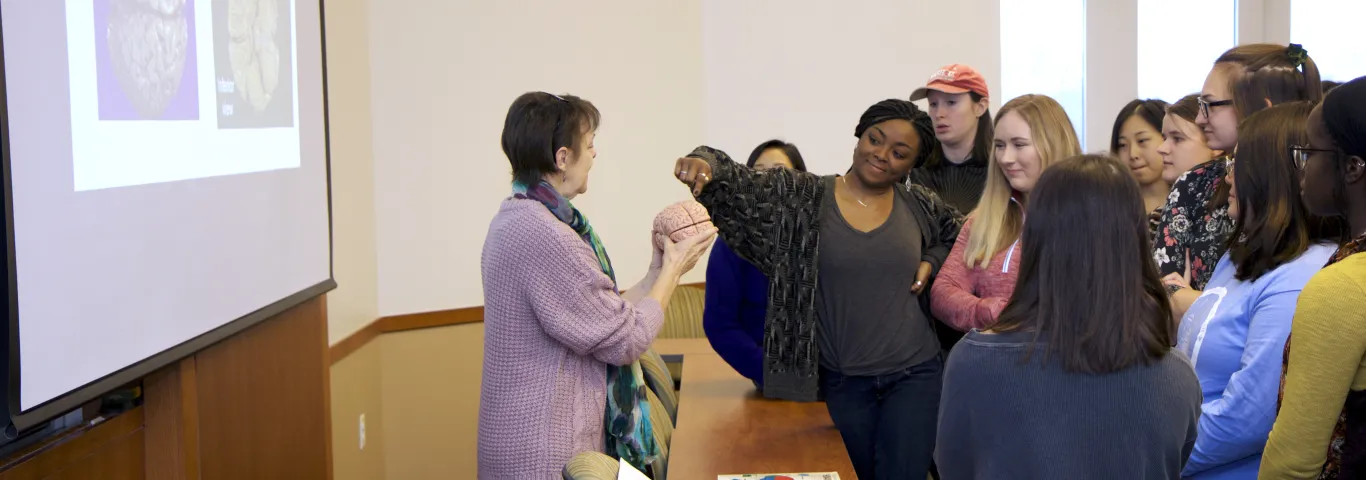John A. Stern Undergraduate Research Fund
Undergraduate involvement in research is of obvious importance in fulfilling the mission of the Department of Psychological & Brain Sciences and for the intellectual development of our students. Our undergraduates have enormous opportunities to become engaged in the enterprise of research. Indeed, one of the special attractions of Washington University is precisely the opportunities for its undergraduates to immerse themselves in the research enterprise with active, first-rank scientists.
Through the generous donation of John Stern, a previous chair of the department, combined with donations from other faculty, friends, and former students, an undergraduate research fund, the John A. Stern Undergraduate Research Fund, has been developed. Students who wish to apply for research funds should submit a copy of their research proposal (usually the description provided for IRB or ASC protocol approval), the IRB/ASC approval, and the purpose for which funds are needed. Examples of appropriate purposes include: purchase of materials, subject payments, travel to meetings or symposia for presentation of research. Support is not provided for research that is covered under grant or other faculty funds. Application forms may be obtained from Shelley Kohlman, Psychology 207B, or skohlman@wustl.edu.
John A. Stern/Katherine F. Hoopes Undergraduate Research Prize
The Stern Undergraduate Research Award has been supplemented through the generous gift of the Hoopes family. The John A. Stern/Katherine F. Hoopes Undergraduate Research Prize recognizes a Psychology major’s undergraduate record of superior achievement in research.
Hyman Meltzer Memorial Award in Psychology
Hy Meltzer was a faculty member of the Psychology Department of Washington University, a leader in the field of Industrial/Organizational Psychology, and a philanthropist (e.g., the Meltzer labs in our previous building, Eads Hall). The Hyman Meltzer Memorial Award in Psychology was created to honor his teaching, research, and practice, and his devotion to the betterment of others. His work helped to shape the field of Psychology in general and Industrial/Organizational Psychology in particular. He was a person who cared about others, and made life better. The Hyman Meltzer Memorial Award recognizes a Psychology major’s overall academic record and significant contributions to serving others.








